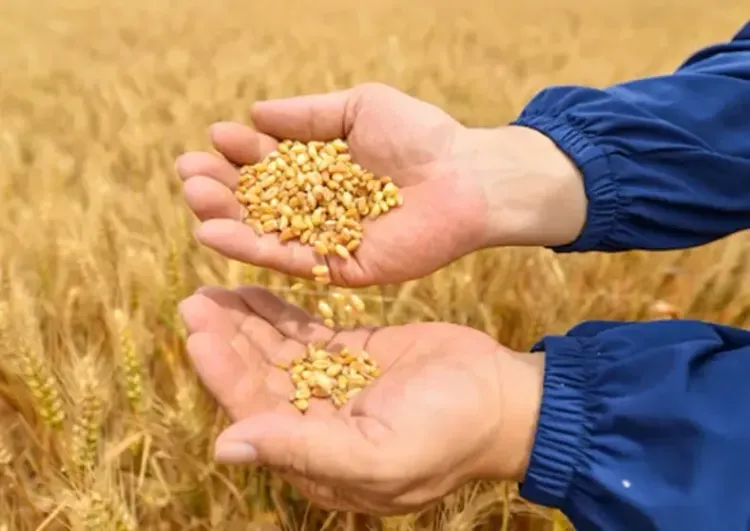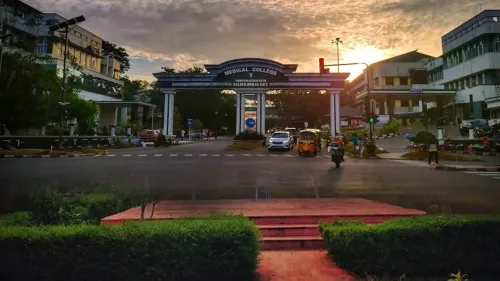New Gene Bank to Safeguard Food Security and Genetic Resources for Future Generations: PM Modi

Synopsis
Key Takeaways
- New Gene Bank established in India.
- Will conserve genetic resources for future generations.
- Aims to enhance food security.
- Supports sustainable farming practices.
- Strengthens India's role in global biodiversity conservation.
New Delhi, March 5 (NationPress) The newly established ‘Gene Bank’ will play a crucial role in conserving the nation’s genetic resources and will also secure food security for future generations, stated Prime Minister Narendra Modi on Wednesday.
A gene bank serves as a repository for genetic materials, which may include seeds, pollen, or tissue samples from various plant species, aimed at protecting them from potential extinction and preserving essential varieties for the future.
The Prime Minister unveiled the creation of the Gene Bank during a post-budget webinar conducted via video conferencing today. Initially announced in the 2025-26 budget, this facility will be the country’s second National GenBank and is designed to protect India’s agricultural biodiversity.
The new facility is set to accommodate 10 lakh (1 million) germplasm lines, providing vital conservation support for both public and private entities engaged in genetic resource management,” noted the Ministry of Agriculture and Farmers Welfare.
In addition to ensuring the future of food, the gene bank will “promote sustainable farming systems both nationally and internationally.”
“The establishment of the second Gene Bank will fortify India’s role as a leader in global biodiversity conservation. This new facility will not only protect India’s priceless plant genetic resources but will also aid international biodiversity efforts, particularly for nations in the SAARC and BRICS regions, providing assistance to those with underdeveloped PGR networks,” the ministry emphasized.
India’s first gene bank was inaugurated in 1996 by the Indian Council of Agricultural Research-National Bureau of Plant Genetic Resources (ICAR-NBPGR) in New Delhi. It consists of 12 regional stations across the country for the collection and preservation of critical crop germplasms.
These germplasms represent the genetic components of plants or animals utilized in research, conservation, and crop breeding.
At present, the bank retains 0.47 million accessions (plant materials stored for breeding), according to the database maintained by ICAR-NBPGR. This includes cereals (0.17 million accessions), millets (over 60,600 accessions), legumes (more than 69,200 accessions), oilseeds (over 63,500 accessions), and vegetables (nearly 30,000 accessions).
“India is acknowledged as a biodiversity-rich nation, boasting a broad variety of cultivated crop species and their wild relatives. With over 811 cultivated crop species and 902 crop wild relatives, the country plays a key role in conserving plant genetic resources (PGR), which are vital for agricultural resilience, food security, and addressing challenges posed by climate change,” the Ministry added.
The existing National Gene Bank, operated by ICAR-NBPGR, also conserves over 4.7 lakh accessions and supports global efforts in PGR conservation through partnerships and distributions to researchers, breeders, and scientists.
This is essential as genetic diversity worldwide faces threats from factors such as climate change, natural disasters, and geopolitical challenges.
“This redundancy structure will provide a fail-safe for India’s irreplaceable germplasm, ensuring long-term sustainability and global food security,” concluded the ministry.









